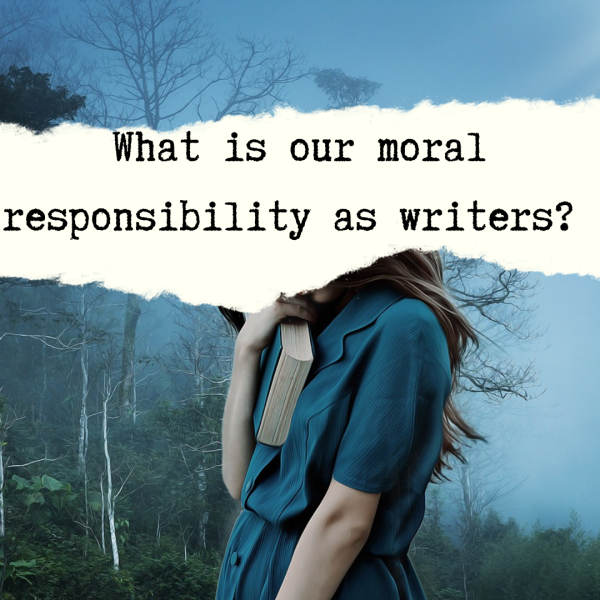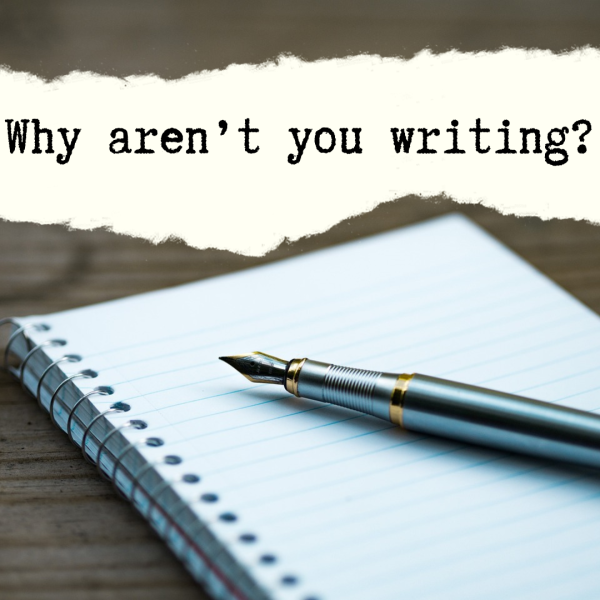This is a subject that I’ve touched on a few times recently. But I realized I’ve never done a whole post about it.
Which is strange, because I think about this a lot. Like, probably more than I should.
To what extent are we as writers morally responsible for the actions of people who consume our content?
Books have gained infamy for inciting violence and bad behavior. Violent video games were blamed for school shootings. Music is blamed for promoting promiscuity and gun violence. Well, only rap music is ever blamed for that. Country music talks about sex and shooting people all the time. Ben Shapiro never has anything bad to say about those performers.
This is a topic I thought a lot about after writing Quiet Apocalypse. When I was writing it, I just wanted to write a scary haunted apartment story about a clever witch and her attempts to stop the apocalypse. It was only afterward that I realized it might be seen as an anti-abortion message.
Which was never, ever my intention. I am pro-choice all the way and regularly donate to the Brigid Alliance.
So, am I to blame if someone uses Quiet Apocalypse as an example of anti-abortion propaganda? Are any of us responsible for people who use our fiction as an excuse to do awful things?
No, we’re not. And if you, like me, have these concerns, I hope that today’s post will help you put them to rest.
People who do bad things are just looking for an excuse
It is the sad reality of our world that some people are going to do terrible things. They’re going to be bigots, they’re going to bully others. Sometimes they’re going to shoot up innocent places. Even holy places.
But these people didn’t get this idea from reading a fictional story. Not a single mass shooter was a perfectly well-adjusted member of society before they played Call of Duty, and now they’re shooting up a nightclub. Drug addicts weren’t clean and sober, then read Alice in Wonderland and started dropping acid.
The desire to do those things was there before the fiction was consumed. And while this fiction might speak to a dark part of them, it didn’t build that dark part from nothing. To say otherwise is to scapegoat storytelling so we don’t have to look at the deeper societal failings that lead to drug addiction and gun violence.
There’s a ton of WWII fiction, and yet there are still Nazis in America right now
We are surrounded by WWII stories. Any streaming platform is bound to have countless movies and TV shows about the war. And there are hundreds upon hundreds of books about it. Some of my favorites are Maus, Number The Stars, and Jacob the Liar.
Nowhere in any of these stories are the Nazis the good guys. And, in case this needs to be said, that’s how it fucking should be. The Nazis are not now, and never will be, the good guys.
And yet, somehow, we have modern American Nazis. Proudly marching around with swastika flags and tiki torches.
How did this happen when our society is flooded with fiction that demonizes (rightly) the Nazi agenda?
Well, there are a lot of reasons why this is happening. People with far more understanding and education than me have researched this issue and published in-depth work regarding it. But I think we can safely say that it wasn’t the massive amount of WWII fiction. It seems to be despite it.
So if all of this work has been done with Nazis as the bad guys and it hasn’t deterred modern Nazis, why do we assume that pro-violent material will cause violence?
There is no way to tell how people are going to interpret your fiction
Lewis Carroll never wanted anyone to associate Alice in Wonderland with drug use. Homelander from The Boys was never supposed to be a good character, but some on the far Right in America have rallied around him. Rage Against the Machine has always been political, and yet somehow people have missed the message.
We just have no way to tell how people are going to perceive our work. No matter how clear we think we are with our message, someone can still take it the wrong way.
This isn’t because people are dumb. Well, not entirely. It’s because people see the world through their own experiences. Our perceptions are based on every experience we’ve ever had, the society we live in, and the lessons we were taught as children. And no matter how compassionate and empathetic we are, we can never see the world through someone else’s eyes.
We are never responsible for the actions of other people
This is something that I struggle with, coming from a high-control religious group. The sort of group that teaches girls to dress modestly so that we are not stumbling blocks for our brothers. We were taught that we weren’t supposed to go shopping on the Sabbath, because we were then causing other people to sin by working on the Sabbath. We were taught that we would be missionaries in our everyday lives if we lived the gospel well enough and devoutly enough.
I was also told by my grandmother that I should fast and pray so that my mother would stop smoking.
That’s a lot of responsibility for other people that was placed onto my very young shoulders. And yes, deconstruction has been a journey for me. There’s going to be a post about this soon.
So I get it. I get what it’s like to feel guilty because of what other people do. But we are never responsible for other people’s actions. Unless you are intentionally inciting violence and hate, it is not your fault if people commit violence or are hateful after reading your work. You are responsible for you. That is it.
At the end of the day, it’s good that we as writers are concerned about the impact we have on the world. It’s good if anyone worries about that. But we cannot allow our fear of other people’s reactions to silence our work. All we can do is tell our stories to the best of our ability, and hope that they inspire good and not hate.
If you want to support Paper Beats World, please share and like this post. Or you can support us financially on Ko-fi.
Nova is available for preorder now on Amazon. Check it out.











Recent Comments